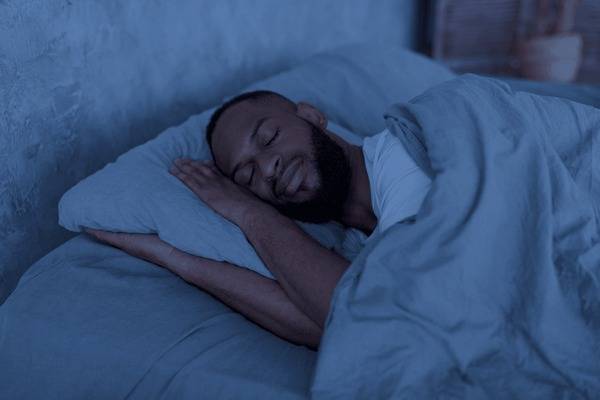9 Factors That Hinder You from Falling Asleep Fast
Introduction:
Getting a good night's sleep is essential for our overall well-being. However, many of us struggle to fall asleep quickly, tossing and turning in bed while our minds race. Several factors can contribute to this difficulty in falling asleep. In this article, we will explore nine common obstacles that hinder you from falling asleep fast, along with some tips on how to overcome them.
1. Stress and Anxiety:
One of the primary culprits behind sleepless nights is stress and anxiety. Worries, deadlines, or personal problems can keep your mind engaged, making it difficult to relax and fall asleep. To combat this, try incorporating relaxation techniques such as deep breathing exercises, meditation, or writing in a journal before bedtime.
2. Caffeine and Stimulants:
Consuming stimulants like caffeine, nicotine, or energy drinks too close to bedtime can interfere with your ability to fall asleep. These substances can keep you alert and make it harder for your body to wind down. It's advisable to limit your intake of stimulating substances, especially in the evening hours.
3. Electronic Devices:
The blue light emitted by electronic devices such as smartphones, tablets, and laptops can suppress the production of melatonin, a hormone that regulates sleep. Additionally, engaging with stimulating content on these devices can keep your mind active. To promote better sleep, establish a digital curfew by avoiding screens for at least an hour before bedtime.
4. Irregular Sleep Schedule:
Maintaining a consistent sleep schedule is crucial for your body's internal clock. Going to bed and waking up at different times disrupts this rhythm, making it harder to fall asleep quickly. Strive to establish a regular sleep routine by going to bed and waking up at the same time every day, even on weekends.
5. Uncomfortable Sleep Environment:
A comfortable sleep environment plays a vital role in falling asleep fast. Factors such as an unsupportive mattress, excessive noise, bright lights, or an uncomfortable room temperature can hinder your ability to relax. Ensure your bedroom is quiet, dark, and cool, and invest in a comfortable mattress and pillows that suit your preferences.
6. Poor Sleep Hygiene:
Neglecting proper sleep hygiene practices can impact your ability to fall asleep quickly. Avoid consuming heavy meals close to bedtime, as digestion can interfere with sleep. Additionally, engaging in stimulating activities or exercising vigorously late at night can make it harder for your body to wind down. Create a calming pre-sleep routine, such as taking a warm bath or reading a book, to signal to your body that it's time to sleep.
7. Mental Stimulation:
Engaging in mentally stimulating activities, such as intense discussions, work-related tasks, or playing stimulating video games, close to bedtime can activate your brain and make it challenging to relax. Opt for more relaxing activities in the evening, such as reading a book or listening to soothing music, to prepare your mind for sleep.
8. External Noise:
Loud or disruptive noises from traffic, neighbors, or household activities can disturb your sleep and make it difficult to fall asleep fast. Consider using earplugs, a white noise machine, or playing calming nature sounds to mask external noise and create a more serene sleep environment.
9. Physical Discomfort:
Physical discomfort, such as pain, an uncomfortable pillow, or an unsupportive mattress, can significantly hinder your ability to fall asleep quickly. Address any sources of discomfort by investing in a suitable mattress and pillows, adjusting room temperature, and using relaxation techniques or gentle stretching exercises to alleviate pain or tension.
Conclusion:
Falling asleep quickly is essential for a restorative night's sleep, but various factors can hinder this process. By recognizing and addressing these obstacles such as stress, caffeine, electronic devices, irregular sleep schedules, uncomfortable sleep environments, poor sleep hygiene, mental stimulation, external noise, and physical discomfort, you can improve your sleep quality and enjoy a more restful and rejuvenating slumber. Prioritize your sleep health and experiment with different strategies to find what works best for you, ultimately leading to a well-deserved good night's sleep.



No comments yet
Be the first to share your thoughts!